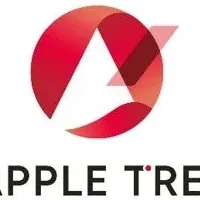
Breakthrough Quantum Chip from Microsoft Set to Revolutionize Computing Landscape
The Rise of Quantum Computing: Microsoft's Majorana 1
In a significant advancement for quantum technology, Microsoft Corporation has unveiled its new quantum chip, Majorana 1. This development contradicts the cautious timelines set by NVIDIA's CEO, Jensen Huang, suggesting that powerful quantum computers could potentially be available in just a few years, instead of decades. The implications of this technology extend far beyond the sphere of computing; they touch upon data security, cryptography, and global cybersecurity strategies, especially in light of rising geopolitical tensions surrounding technology.
In recent months, quantum computing has gained traction not just due to technological advancements, but also due to the strategic maneuvers by nations seeking to dominate this emerging field. China, in particular, has accelerated its quantum strategy, raising concerns about global data-centric authoritarianism. Governments worldwide are now racing to prepare for the inevitable impact of quantum computing on cybersecurity, leading to increased focus on future-proofing cryptographic systems.
Scope Technologies and Quantum Preparedness
Scope Technologies Corp., a frontrunner in quantum security, has recently announced its remarkable Quantum Preparedness Assessment (QPA), now integrated with a full Risk Management Framework (RMF). This innovative AI-driven solution allows businesses to evaluate and bolster their defenses against potential quantum threats with speed and greater accuracy.
Sean Prescott, the Founder and CTO of Scope Technologies, stated, “As quantum threats loom closer, businesses must act now to evaluate and strengthen their security infrastructure. Our AI-powered QPA offers a seamless, data-driven approach to assessing and mitigating risks before it's too late.” This proactive approach comes in response to concerns highlighted by the U.S. Government Accountability Office, emphasizing the need for readiness against potential quantum computing cyberattacks.
The Competitive Landscape
Microsoft's advancements, particularly with the Majorana 1 chip, have not gone unnoticed. Combining a new topological qubit architecture, this processor endeavors to pave the way for practical quantum computing solutions capable of addressing large-scale, real-world problems. Experts predict that the economic impact of quantum computing could reach up to $2 trillion by 2035, underscoring the high stakes in this arena.
Other companies, including Nokia Oyj and Quantum eMotion Corp., are also making significant strides. Nokia recently released a report focused on quantum-safe network solutions for industries susceptible to cyber threats, while Quantum eMotion is integrating its Entropy-as-a-Service technology into AI-driven financial platforms to enhance decision-making and security measures.
D-Wave Quantum Inc., another key player, has developed a hybrid-quantum application to optimize agricultural processes through autonomous vehicles, showcasing the technology's versatile applications across various sectors.
The Urgency for Quantum-Proof Solutions
As traditional encryption methods face vulnerabilities due to emerging quantum threats, it’s essential for businesses and governments to prioritize quantum-proof security measures. The imminent arrival of what’s being termed
Topics Other)










【About Using Articles】
You can freely use the title and article content by linking to the page where the article is posted.
※ Images cannot be used.
【About Links】
Links are free to use.